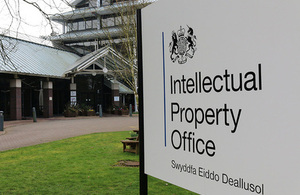23 Jan 2017

Hospitals across Scotland are coughing up more than £1500 per shift for agency nurses to cover staffing rotas.
Three health boards have confirmed they paid more than that amount as managers struggle to find nurses to fill gaps across the country.
NHS Lanarkshire confirmed the highest amount it paid was £1565 for a single shift in 2015/16, closely followed by NHS Lothian, which paid £1528 to an agency the previous year.
In NHS Ayrshire and Arran, bosses estimated the highest single payment for a shift – defined as more than eight hours but less than 14 – was between £1300 and £1600.
And in NHS Tayside, an agency was paid £1251 for a single shift last year.
Most health boards refused to release the data, which had been requested through Freedom of Information by the Scottish Conservatives.
The Scottish Government has been repeatedly criticised for its increasing use of bank and agency nurses, as well as high levels of vacancies, with hundreds of roles lying empty for months at a time.
Last year, NHS boards spent £158 million paying for bank and agency nurses to cover shifts.
Scottish Conservative shadow health secretary Donald Cameron said:
“It is staggering that hard-pressed health boards could find themselves paying this much to an agency for a nursing shift.
“Not only is it an astonishing waste of taxpayers’ money, but it’s a slap in the face to staff nurses who can only dream of such remuneration.
“Bank and agency nurses play an important role when it comes to helping plug gaps in the NHS.
“But demands of more than £1500 for a single shift are an abuse, and one health boards should not bow to.
“The SNP’s woeful lack of workforce planning and failure to train enough nurses has created a situation where hospitals are too dependent on bank and agency staff.
“The result of that is health boards paying through the nose, when an adequately resourced rota could have done the job at a fraction of the price.
“Following these revelations, ministers should examine these instances of extremely high payments to agencies, and act to ensure they don’t occur again.”
Ends
Notes to editors:
Below is a summary of the health boards who responded to the following question by the Scottish Conservatives through Freedom of Information. For a copy of the responses, contact the Scottish Conservative press office.
Could the health board provide the largest amount paid for an agency nurse for one shift between 2013/14 and 2015/16:
NHS Ayrshire and Arran – £1300-1600 per shift
NHS Borders – £93.45 an hour
NHS Lanarkshire – £1565 per shift
NHS Lothian – £1528 per shift
NHS Tayside – £1251 per shift
The Scottish Conservatives have previously raised concern about the spend on bank and agency nurses:
http://www.scottishconservatives.com/2016/06/8689/


